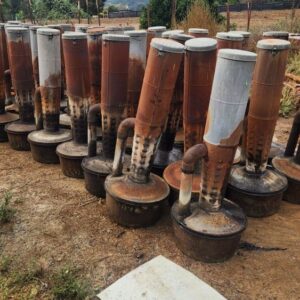Artificial Intelligence (AI) is no longer just a futuristic buzzword—it is a present-day force actively reshaping the American economy. From automation in factories to ChatGPT-style assistants in offices, the impact of AI is now evident across nearly every sector of the job market. While it promises efficiency and innovation, AI is also raising questions about job displacement, workforce reskilling, and economic inequality.
1. Manufacturing and Logistics
Robots powered by AI are replacing many repetitive tasks. According to the Bureau of Labor Statistics, automation has already reduced the need for low-skilled labor in warehouses by nearly 14% over the past five years.
2. Customer Service
AI chatbots are now handling tasks that were once managed by human agents. Tools like Google’s Dialogflow and OpenAI’s GPT have begun answering customer queries with surprising accuracy.
3. Content Creation
Writers, editors, and graphic designers are now competing with AI tools that can produce articles, images, and even music. While AI can’t fully replace human creativity, it’s cutting costs for businesses and shifting how content is produced.
According to a 2024 report by McKinsey & Company:
- 30% of work activities in 60% of occupations could be automated
- AI adoption is expected to increase U.S. productivity by 1.5% per year
- Over 12 million American workers may need to transition to new jobs by 2030
Big tech companies like Amazon and Microsoft are investing in retraining programs. Amazon’s $1.2 billion “Upskilling 2025” initiative is one example, aimed at training employees in:
- Cloud computing
- Machine learning
- Data analytics
Colleges and bootcamps are also expanding AI-focused curricula to help workers transition into roles such as:
- AI ethics consultant
- Data analyst
- Machine learning technician
AI has triggered debates about:
- Bias and discrimination in algorithms
- Data privacy concerns from AI-powered surveillance
- Widening wealth gaps between high-tech workers and the rest of the population
Policymakers are being urged to introduce stronger regulations to balance innovation with protection of human rights and job security.
The future of AI in the American job market remains uncertain but exciting. Experts predict that while some jobs will vanish, others—ones we can’t yet imagine—will emerge. The key will lie in adaptation, education, and inclusive innovation.
Artificial Intelligence is not the end of work, but the beginning of a new kind of work. As with the industrial and digital revolutions, the winners will be those who adapt quickly and thoughtfully. For America, the challenge is not avoiding AI—but making sure it works for everyone, not just the tech elite.






